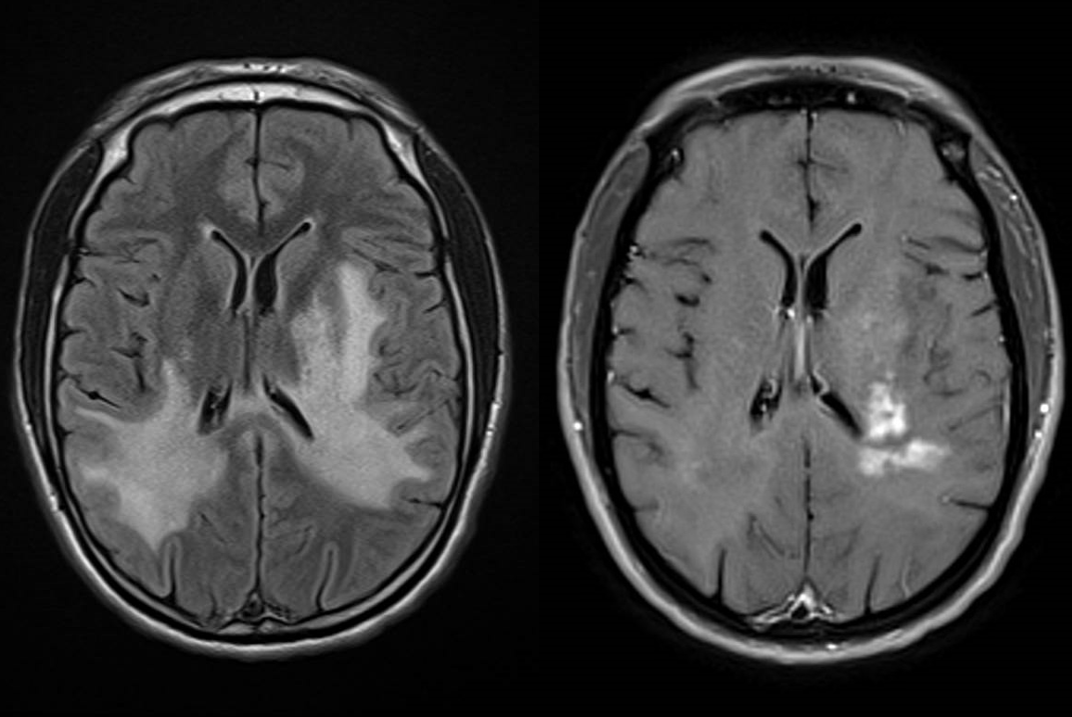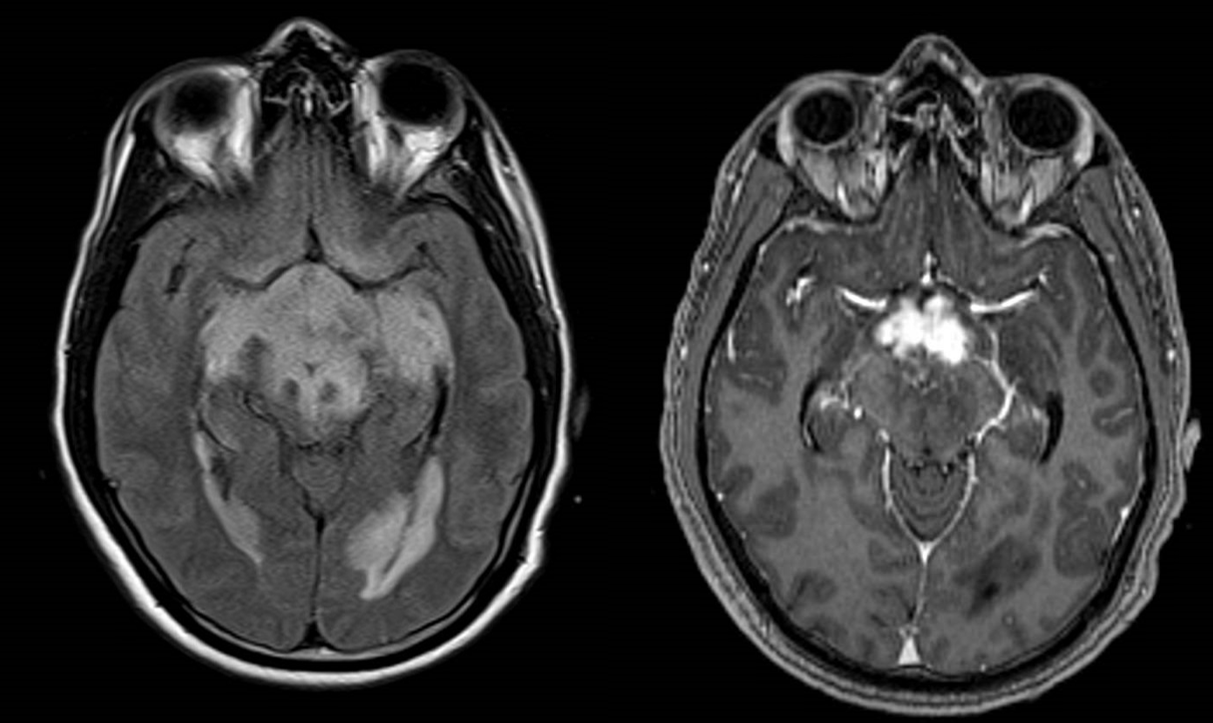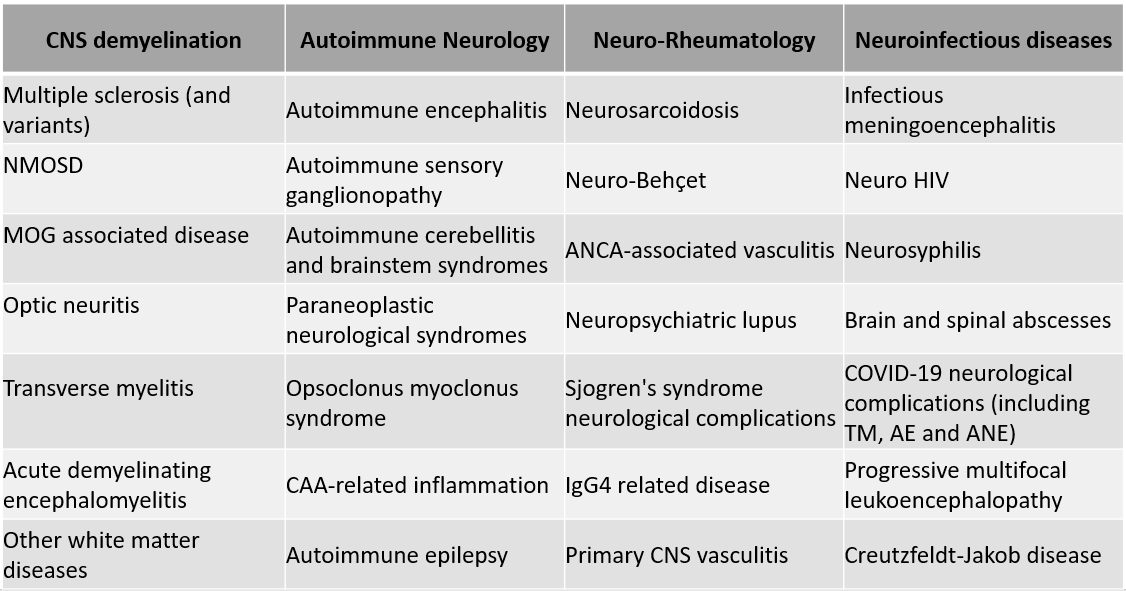About the Program
Fellows may tailor their experience depending on their interests. Our fellows develop competence managing these complicated and rare diseases in the outpatient and inpatient settings, as well as through case discussion, didactic presentations, and scholarly work – preparing them for a career in academic neurology or in community practice.
Our fellows also participate in neuroimmunology research. We have developed a University of Iowa Bio-Repository of Autoimmune and Inflammatory Neurologic diseases – UI-BRAIN. We are a site for multiple research studies and clinical trials in neuroimmunology. The University of Iowa is also home to the Data Coordinating Center (DCC) for the The Network for Excellence in Neuroscience Clinical Trials (NeuroNEXT), for which we are also a clinical site.
Our program includes a competitive benefits package. Iowa City provides a vibrant and diverse community with many affordable housing options and cultural and recreational activities.
Clinical Training
The fellowship at UIHC offers 1 year of clinical training which provides a strong education in diagnosis and treatment of adult and pediatric autoimmune and infectious neurological diseases for either academic or community-based practice careers. The fellow sees patients in both outpatient and inpatient settings:
Outpatient setting:
- Fellow continuity of care clinics: staffed by one of the neuroimmunology faculty
- Electives: option to rotate through our state-of-the-art clinics and diagnostic services
- Neuro-ophthalmology clinic
- Rheumatology clinic
- Neuropathology rotation
- Neuroradiology rotation
Inpatient exposure:
- We have established a “super-consult” system
- Our inpatient neurology teams (general neurology, consults, stroke and pediatric neurology) will request consultation for complicated and rare neurological disorders
- Consults are staffed with one of the neuroimmunology faculty
- Patients are often seen back in the fellow’s continuity of care clinic, offering valuable longitudinal follow-up through the different phases of their illness
- Electives: option to rotate with our infectious diseases consultation team
Didactics, Conferences, and Educational Opportunities
Neuroimmunology division meeting
Weekly 1 hour meeting. The fellow is an integral part of the NI team and is expected to join the weekly division meeting to discuss topics that are relevant to patient care and clinic workflow. The meeting is also used for discussing interesting/challenging cases, journal club, and external speaker presentations on topics relevant to the multidisciplinary care for our patients (e.g. urology, sleep, PMR, psychiatry, neuroradiology, pathology, etc.).
Meeting with the fellowship program director
Weekly check-in on cases, logistics, and career development.
Neuroimmunology research meeting
Weekly 1 hour meeting. This meeting includes research coordinators, research nursing, and neuroimmunology faculty and fellows. We discuss scholarly projects including current and upcoming studies and trials, biorepository development, and research journal club. We also host guest speakers / collaborators to present on their research.
Neuroimmunology conference for the residents
Recurring neuroimmunology presentations for residents. Usually presented by one of the NI faculty or fellow, providing an opportunity to develop teaching skills and material in neuroimmunology.
Joint Neuroradiology conference
Monthly 1 hour session. Attended by various faculty from Neuroradiology and Neurology, NR fellows and neurology residents, this conference is a great forum to discuss interesting cases with great neuroradiological findings, most of which are autoimmune or infectious causes. This is an outstanding educational opportunity for the NI fellow to lead and moderate the discussion on neuroimmunology cases.
Neurology Grand Rounds
Weekly every Tuesday 12:00 – 1:00 PM.
Morning report
Weekly every Friday 7-7:30 AM. This is a case discussion presented by residents of complicated inpatients, many of which are are challenging neuroimmunology cases.
Interdisciplinary Conferences
We are developing recurring conferences to discuss cases from an interdisciplinary perspective in joint meetings with Infectious Diseases, Rheumatology, and Neuro-Ophthalmology
The fellow will be expected to maintain the role of a clinical teacher as they will regularly work with medical students, residents, and fellows from other medical disciplines.
Diseases Managed




Frequently Asked Questions
How many fellows are there?
1 per year
How / where does the fellow spend their time?
The fellow has both outpatient clinics dedicated to neuroimmunology patients and intermittent inpatient consults for acute cases.
What kinds of patients does the fellow see?
We have a rich referral pool and fellows see a range of neuroimmune disease pathologies in patients with diverse background; see a list of diagnoses here.
Is there any call for the fellows?
There is no night or weekend call for the fellow; the fellow will see inpatient super-consults when appropriate.
Is there flexibility in the curriculum?
Yes, the fellow can tailor elective clinics or inpatient experiences to target areas of interest.
Can fellows do research?
Yes, fellows can learn about and participate in clinical trials, design and execute small retrospective studies, and publish case series/reports.
Are there opportunities for the fellow to teach?
Yes, fellows are heavily involved in teaching residents and medical students; there is flexibility to engage in extra teaching and teaching skills development / work-shops.
Can fellows attend any national conferences?
Yes, our fellows will have divisional / departmental support to attend at least one national conference.
What is life in Iowa City like?
Iowa City is a bustling college city with abundant opportunities for cuisine, culture, arts and sports while remaining affordable, safe, and convenient; learn more about life in Iowa City here.
How can I get more information?
Please contact our Fellowship Program Coordinator, Heather Clement for more information.
How can I apply?
See our application requirements here; please contact Heather Clement to submit application material.
Patient and disease diversity
As the only academic tertiary care center in Iowa, UIHC is the destination for a diverse population of patients and diseases. Fellows manage patients from all over the Midwest with varying backgrounds. Fellows have exposure to a wide range of diseases, from “bread and butter” to the rarest “fascinomas” on a regular basis (see examples).
By extension, the fellow also develops skills to diagnose or manage other non-inflammatory diagnoses that may mimic immunological or infectious diseases such as CNS tumors and neoplasms (leptomeningeal carcinomatosis, melanomatosis, gliomatosis, primary CNS lymphoma, infiltrative gliomas), metabolic and toxic neurological syndromes (PRES, Wernicke's encephalopathy, central pontine myelinolysis, subacute combined degeneration from B12 and copper deficiency) and inherited leukodystrophies diagnosed in adults (CADASIL, retinal vasculopathy with cerebral leukoencephalopathy, mitochondrial complex I deficiency, etc.).
Research
University of Iowa Biorepository of Autoimmune and Inflammatory Neurological Diseases (UI-BRAIN)
- Prospective biorepository of ambulatory and hospitalized patients with neuroimmunological disease to establish a cohort for biomarker and intervention studies.
Clinical Trials
- Site for multiple clinical trials in autoimmune neurology and demyelinating diseases.
- One of 25 clinical trial sites in the Network for Excellence in Neuroscience Clinical Trials (NeuroNEXT).
Journal club
- Regular discussions of clinical and basic science publications.